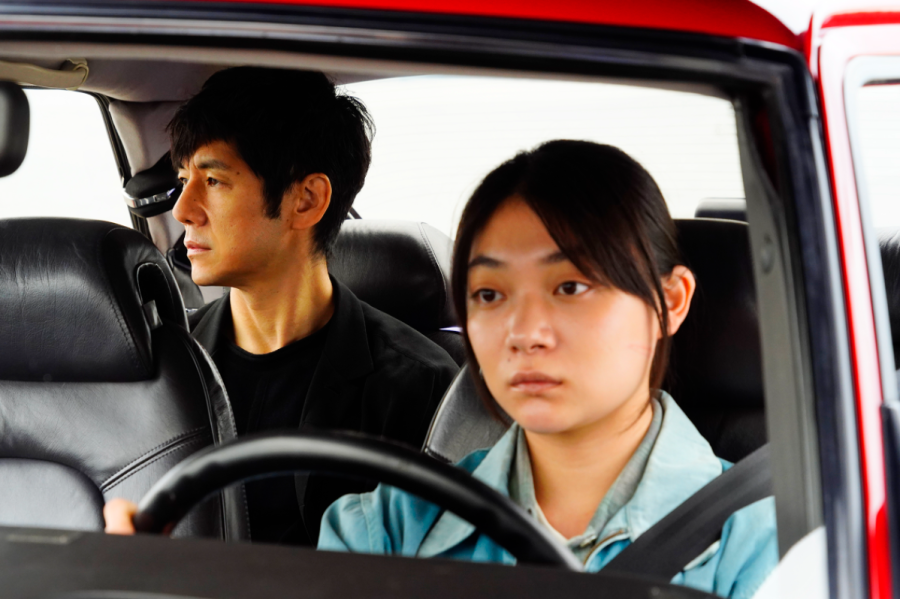Review: Surprise Hit ‘Drive My Car’ Makes Oscar History
February 24, 2022
Writer and director Ryûsuke Hamaguchi adapted the first-ever Japanese film to be Oscar-nominated for Best Picture. “Drive My Car” also received nominations for Best Director, Best International Feature, and Best Adapted Screenplay.
The film is based on a renowned short story of the same name, written by Haruki Murakami. “Drive My Car” delves into love, the essence of truly knowing someone, loss, grief and the struggle to move on. Murakami efficiently reflects on these themes in the adapted short story. However, the film is a tyrannical epic, a three-hour-long meditation that will leave viewers emotionally devastated.
Under the Hood
At its core, “Drive My Car” focuses on the relationships of stage-actor Kafuku, played by Hidetoshi Nishijima. Kafuku is hired to direct “Uncle Vanya,” a classic Russian play written by Anton Chekhov. The theater company mandates that he uses a chauffeur, a young girl named Misaki (Tôko Miura). The movie is a love letter to the car, not his sleek red Saab in particular, but to every person behind the wheel. The film provokes the question, how many of the most important conversations or moments of our lives happen in cars?
Early on in the film, Kafuku is struck by a sudden loss of a loved one and the bulk of the runtime is a rumination on being left alone to pick up the pieces of a past life. Misaki and Kafuku spend much of the film seeking closure from the people they lost, like trying to squeeze water from a stone. There is a search for answers from beyond the grave.
Their journey and one true takeaway from the film are best summed up in a quote from the short story. “If we hope to truly see another person, we have to start by looking within ourselves.”
The Scenic Route
Hamaguchi adapted an incredibly cohesive short story into a three-hour epic while not wasting any screentime. The ideas put forward in the short story are delved into at length and developed very naturally into something greater. The film will often pose questions for the characters that require introspection. Then they allow the viewer to engage in the same introspection. For example, after an emotional scene, they may pull the camera back for a very-lengthy aerial shot of the car gently whizzing through the lush Japanese countryside.
The soundtrack, scored by Eiko Ishibashi, lulls listeners and characters into the same meditative state — into the back seat. The pacing and camerawork match the carefully-crafted vibe, the film is in no rush to convey its somber messages. I enjoyed reading the short story, but the film is so comprehensive that the text runs thin in comparison.
I highly recommend the film. Please check out more stories from Murakami as well.
“Drive My Car” is currently playing every day at Salt Lake Film Society Broadway. Get tickets here.








